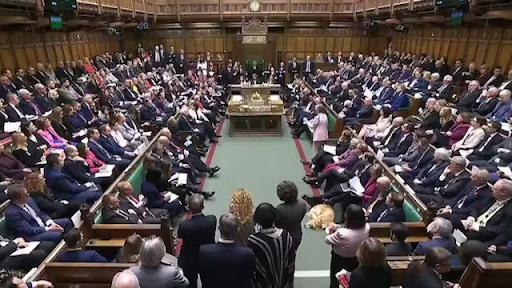




Copyright infringement not intended
Source: News 18
The Terminally Ill Adults (End of Life) Bill was passed by the UK Parliament in the House of Commons, allowing terminally ill patients with less than six months to live to choose assisted dying in England and Wales.
Assisted dying is the practice of assisting someone who is suffering from a terminal illness or unbearable pain to end their own life, usually with medical assistance.
It has two major forms:
|
Practice Question Q. What is Assisted dying? What are the ethical and moral implications for this practice? |
© 2026 iasgyan. All right reserved